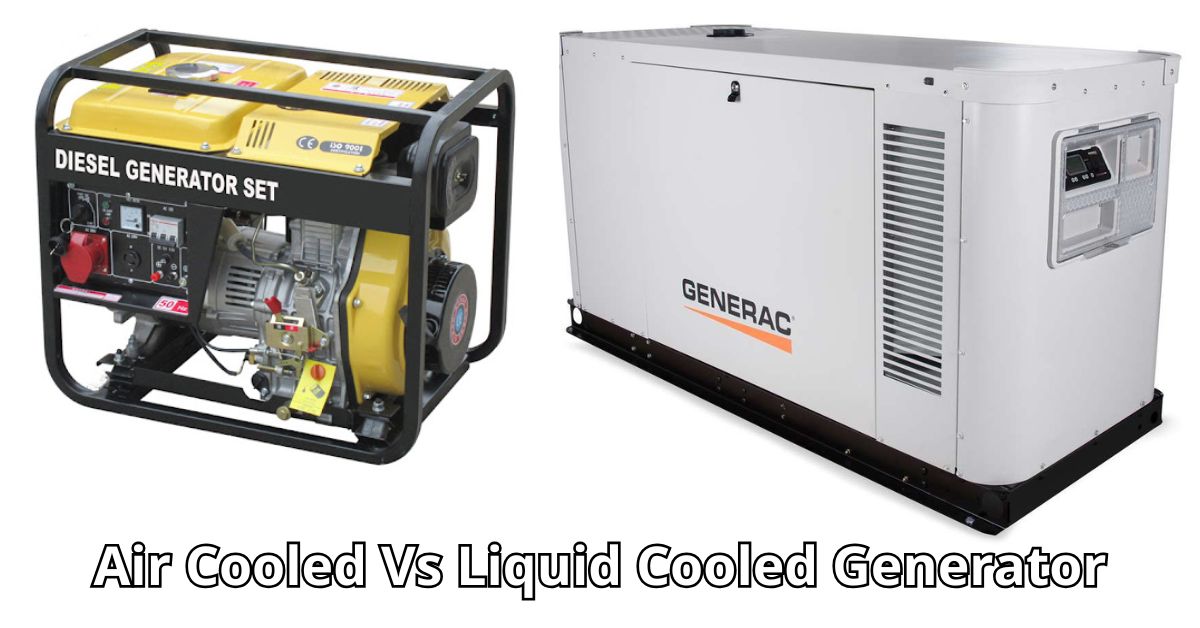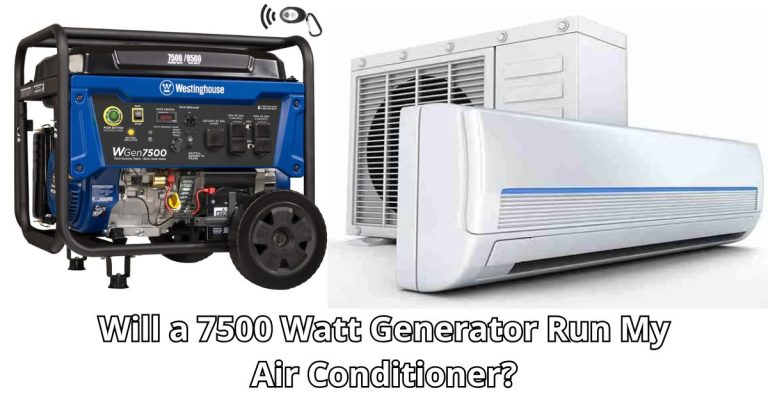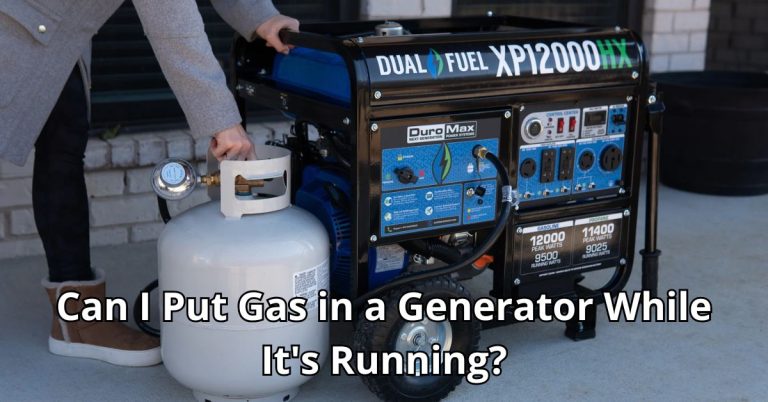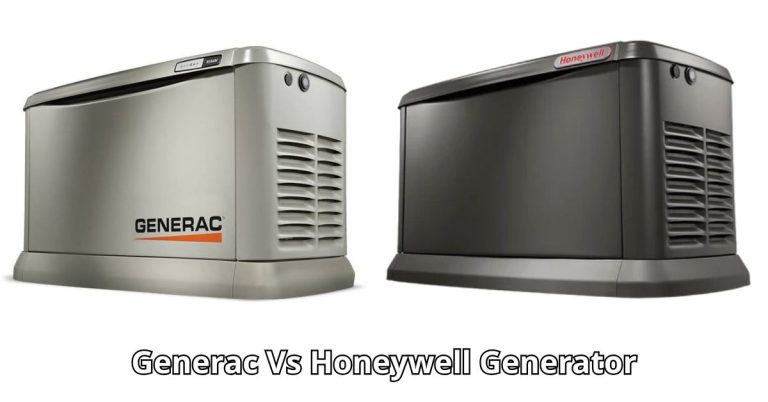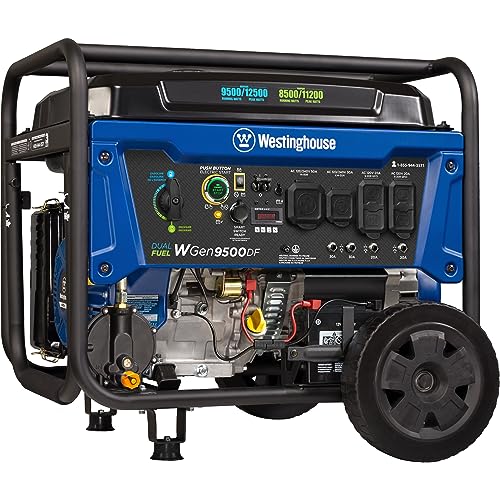Air Cooled Vs Liquid Cooled Generator: Ultimate Comparison Guide
Choosing between an air-cooled and a liquid-cooled generator can be challenging. Both have their pros and cons.
Generators are essential for backup power. They keep your home or business running during outages. But which type is better for your needs? Air-cooled generators use fans to cool the engine. Liquid-cooled generators use liquid coolant for the same purpose.
Understanding the differences can help you make an informed choice. This blog will explore the advantages and drawbacks of each type. By the end, you’ll know which generator fits your requirements best. Stay tuned to learn more about these two cooling systems.

Credit: rcaelectric.com
How Generators Work
Generators are essential for providing power during outages or in remote locations. They convert mechanical energy into electrical energy to keep your devices running. Understanding how they work helps in choosing the right type for your needs.
Basic Operation
Generators operate by using an engine to produce mechanical energy. This energy turns a rotor inside a magnetic field, creating electrical current. The current then flows through wires to power your appliances.
There are different types of generators, but the basic operation remains the same. They use fuel, like gasoline or diesel, to run the engine. The engine powers an alternator that produces electricity. The electricity is then routed to your home or business.
Role Of Cooling Systems
Cooling systems are crucial for generator performance. They prevent the engine from overheating, ensuring smooth operation. Without a cooling system, the generator could fail or get damaged.
There are two main types of cooling systems:
- Air-cooled: Uses air to cool the engine. Fans blow air across the engine to dissipate heat. These systems are simpler and require less maintenance.
- Liquid-cooled: Uses liquid coolant to keep the engine cool. The liquid absorbs heat and circulates it away from the engine. These systems are more efficient but need regular maintenance.
The choice between air-cooled and liquid-cooled depends on your needs. Smaller generators usually use air-cooled systems. Larger, more powerful generators often use liquid-cooled systems.
Air Cooled Generators
Air cooled generators are an essential power solution for many homes and businesses. These generators use air to cool their engines, making them simpler and more affordable than their liquid-cooled counterparts. Understanding how they work and their benefits can help you choose the right generator.
Mechanism
Air cooled generators use air to reduce the engine’s temperature. They have fins on the engine that dissipate heat. A fan blows air over these fins to cool the engine. This process keeps the generator from overheating during operation.
Advantages
Air cooled generators are less complex than liquid-cooled ones. They are easier to maintain because they have fewer parts. These generators are also lighter and more portable. They are suitable for small to medium power needs. Their initial cost is lower, making them budget-friendly.
Disadvantages
Air cooled generators can be noisier. Their cooling system is less efficient, so they can overheat in extreme conditions. They may not be suitable for large power demands. Their lifespan might be shorter due to the limited cooling efficiency. These generators require adequate ventilation to operate effectively.
Liquid Cooled Generators
When choosing a generator, one critical decision is between air-cooled and liquid-cooled options. Liquid-cooled generators are known for their efficiency and reliability. They use a liquid cooling system to keep the engine at an optimal temperature. This cooling method is ideal for heavy-duty applications and continuous usage.
Mechanism
Liquid-cooled generators use a coolant, often a mix of water and antifreeze. The coolant flows through the engine block, absorbing heat. A pump then circulates the heated coolant to a radiator. The radiator dissipates the heat with the help of fans. This process ensures the engine remains cool.
Advantages
- Efficiency: Liquid cooling is more efficient than air cooling. It can handle higher loads.
- Longevity: Engines in liquid-cooled generators last longer due to better temperature control.
- Noise Reduction: Liquid-cooled generators are quieter. The coolant absorbs some noise.
- Performance: These generators perform well in all weather conditions.
Disadvantages
- Cost: Liquid-cooled generators are more expensive. They have higher initial costs and maintenance fees.
- Complexity: The cooling system is more complex. This can lead to more potential issues.
- Maintenance: These generators require regular maintenance. The coolant levels and radiator need frequent checks.
- Size: Liquid-cooled generators are larger and heavier. They need more space for installation.
Performance Comparison
Choosing between an air cooled and liquid cooled generator can be challenging. Let’s look at their performance. This will help you make an informed decision.
Efficiency
Air cooled generators are easier to maintain. They have fewer parts and simpler designs. This makes them efficient for smaller tasks. Liquid cooled generators, however, are more efficient for heavy-duty use. They handle higher loads better. They also have longer run times.
Heat Dissipation
Heat dissipation is crucial for generator performance. Air cooled generators use fans to cool the engine. They can struggle in very hot environments. Liquid cooled generators use coolant to manage heat. This method is more effective. It keeps the engine at a stable temperature. This leads to better performance.
Noise Levels
Noise levels vary between these two types. Air cooled generators are generally louder. They rely on fans, which can be noisy. Liquid cooled generators are quieter. The liquid cooling system muffles the sound. This makes them suitable for noise-sensitive areas.
Maintenance Requirements
Understanding the maintenance needs of your generator is essential for its longevity and efficiency. Both air-cooled and liquid-cooled generators have specific maintenance requirements. Knowing these can help you decide which type suits your needs best. Let’s look at what each type entails.
Air Cooled Maintenance
Air-cooled generators require regular checks for debris around the cooling fins. Dust and dirt can block airflow, causing overheating. Clean the fins periodically to prevent this. Inspect the air filter frequently. Replace it if it appears clogged or dirty. Regular oil changes are necessary. Follow the manufacturer’s guidelines. Check the spark plugs and replace them when worn out. Inspect the fuel system for leaks or blockages. Finally, ensure the battery is in good condition and fully charged.
Liquid Cooled Maintenance
Liquid-cooled generators need a bit more attention. Regularly check the coolant levels. Top up if necessary. Inspect the radiator and hoses for leaks or damage. Clean the radiator fins to ensure efficient cooling. Change the oil and filters as per the manufacturer’s instructions. Examine the water pump and replace it if it shows signs of wear. Check the belts and pulleys for any wear and tear. Ensure the battery is well-maintained and charged. Conduct regular tests to ensure the system operates smoothly.
Cost Analysis
Choosing between an air-cooled and a liquid-cooled generator involves several factors. One key aspect is cost. Understanding the cost implications can help you make an informed decision. Let’s break down the costs into three main areas: initial costs, operating costs, and long-term value.
Initial Costs
Air-cooled generators generally have lower initial costs. They are simpler in design and easier to manufacture. Liquid-cooled generators, on the other hand, are more complex. This complexity often leads to higher prices upfront. Consider your budget before making a choice.
Operating Costs
Operating costs differ between air-cooled and liquid-cooled generators. Air-cooled models typically require less maintenance. They have fewer parts that can wear out. Liquid-cooled generators need more upkeep. Their cooling systems need regular checks and possible replacements. These factors can increase operating costs over time.
Long-term Value
Long-term value is another important factor. Air-cooled generators have a shorter lifespan. Their components are less durable. Liquid-cooled generators tend to last longer. They are more robust and can handle extended use. Consider how long you need the generator to work efficiently. This will help you assess long-term value.
Ideal Applications
When choosing a generator, it’s crucial to understand where and how it will be used. The ideal application can vary greatly between air cooled and liquid cooled generators. Each has its own set of advantages depending on the situation and requirements. Below, we explore the best uses for each type.
Best Uses For Air Cooled
Air cooled generators are perfect for small to medium-sized applications. These are often found in residential settings and small businesses. They are ideal for scenarios where power demands are lower and the generator will not run continuously.
- Home Backup Power: An air cooled generator can power essential appliances during outages.
- Small Offices: Suitable for offices with light power needs.
- Outdoor Events: Ideal for temporary setups like parties or small outdoor events.
These generators are often more affordable and easier to maintain. They are also quieter, making them suitable for settings where noise is a concern.
Best Uses For Liquid Cooled
Liquid cooled generators shine in heavy-duty applications. They are built to handle high power demands and run for extended periods. These generators are essential for environments that cannot afford power interruptions.
- Large Commercial Buildings: Supports high power needs and continuous operation.
- Industrial Sites: Provides reliable power for heavy machinery.
- Data Centers: Ensures continuous power to critical systems.
Liquid cooled generators are more durable and efficient at managing heat. They are better for applications that require consistent performance over long durations.
| Type | Best Uses | Key Benefits |
|---|---|---|
| Air Cooled | Homes, Small Offices, Outdoor Events | Affordable, Quiet, Easy Maintenance |
| Liquid Cooled | Commercial Buildings, Industrial Sites, Data Centers | Durable, Efficient, Handles High Power |

Frequently Asked Questions
What Is An Air Cooled Generator?
An air cooled generator uses air to cool its engine. It typically has fans and vents to disperse heat.
What Is A Liquid Cooled Generator?
A liquid cooled generator uses coolant to manage engine temperature. It circulates liquid through the engine to keep it cool.
Which Generator Is Quieter?
Liquid cooled generators are generally quieter than air cooled generators. They operate more smoothly due to better temperature regulation.
Which Is More Expensive: Air Or Liquid Cooled Generator?
Liquid cooled generators are usually more expensive than air cooled generators. They have more complex cooling systems and components.
Conclusion
Choosing between air-cooled and liquid-cooled generators depends on your needs. Air-cooled models are easier to maintain and less expensive. They work well for small spaces and moderate use. Liquid-cooled generators are better for heavy-duty tasks. They are quieter and more efficient.
Think about your power requirements and budget. Both types have their advantages. Evaluate your situation carefully. Make an informed decision for reliable power.

